Description
ABSTRACT
Nigeria’s Proceeds of Crime (Recovery and Management) Act 2022: Background, Key Provisions and Potential Issues
Isaac M Ibikunle*
Nigeria recently enacted the Proceeds of Crime (Recovery and Management) Act 2022. The statute, which is the first of its kind in Nigeria, makes comprehensive provisions for, inter alia, forfeiture and management of properties suspected to be proceeds of crime. With the aid of primary and secondary sources as well as comparative analysis, this paper, in the main, chronicles the checkered history of recovery and management of proceeds of crime in Nigeria before the statute, including spotlighting the legal challenges which characterised the period; examines the key and novel provisions of the statute and its impact on the existing laws as well as on the interests of secured lenders and other third parties; and addresses the gaps in the statute and the potential legal controversies that may arise during implementation.
Keywords: Criminal Forfeiture, Civil Forfeiture, Confiscation Order, Forfeiture Order, Preservation Order, Restraint Order and Ancillary Order, Proceeds of Crime Act.
INTRODUCTION
The Proceeds of Crime (Recovery and Management) Act 2022 (the PoC Act) is a statute enacted to govern the recovery and management of proceeds of crime, properties reasonably suspected to have been derived from unlawful activities, instruments used or intended to be used in the commission of unlawful activities and unclaimed properties reasonably suspected to be proceeds of crime in Nigeria (all to be hereinafter referred to as “Proceeds of Crime”) regardless of whether the Proceeds of Crime are within or outside Nigeria.1
Prior to the enactment of the PoC Act, the recovery and management of Proceeds of Crime were governed by disparate and somewhat controversial provisions contained in several statutes and regulations. The PoC Act was enacted to ostensibly address these controversies and gaps. However, whilst the PoC Act introduces several notable provisions, it nevertheless comes with its gaps and potential controversies. Thus, this paper is written to, inter alia, help the potential users (domestic and international) of the statute to productively navigate through the enactment, especially concerning the identified gaps and potential legal issues.
*LL.B (Ife), LL.M (Lagos), LL.M Candidate at Harvard Law School, USA. The author is grateful for the useful comments of Wahab Shittu SAN, external counsel to the EFCC, on the draft of this article. The views expressed in the article are solely that of the author.
- See the preamble and section 1 (1)(a)(b) of the PoC Act. Notably, the PoC Act does not define the term “Proceeds of Crime”, however, it defines “Proceeds” as “property, whether (a) wholly or partly derived or realized, directly or indirectly, from an unlawful activity, and (b)the property is situated within or outside Nigeria,” and “unlawful activity” as “an act, omission, or conduct, committed directly or indirectly which constitutes an offence or which contravenes a law in force in Nigeria, whether the act, omission or conduct occurred before or after the commencement of this Act or where the offence is committed in a country outside Nigeria, would also constitute an offence if it had been committed in Nigeria.”

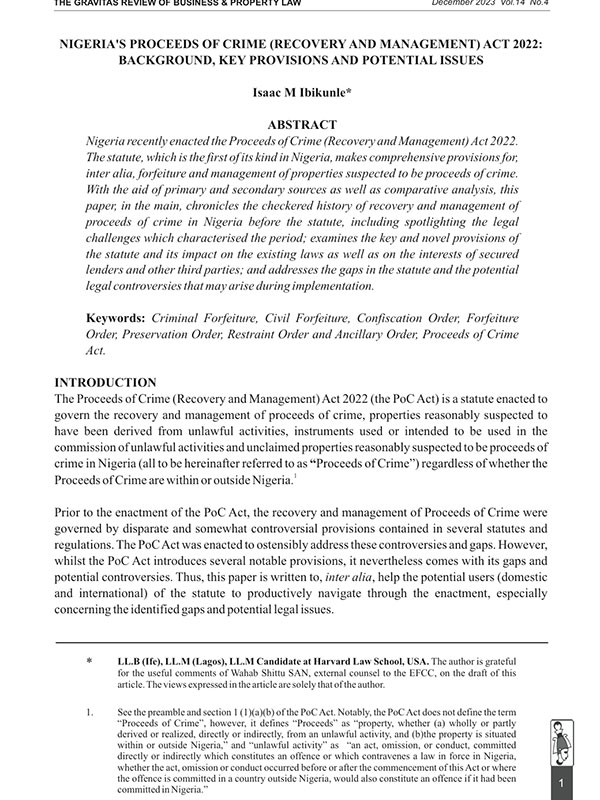
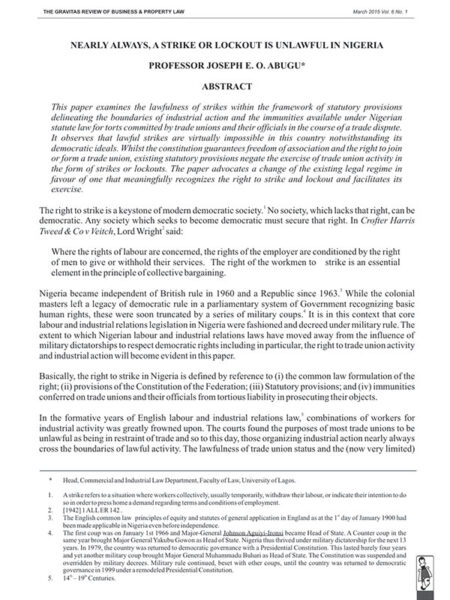
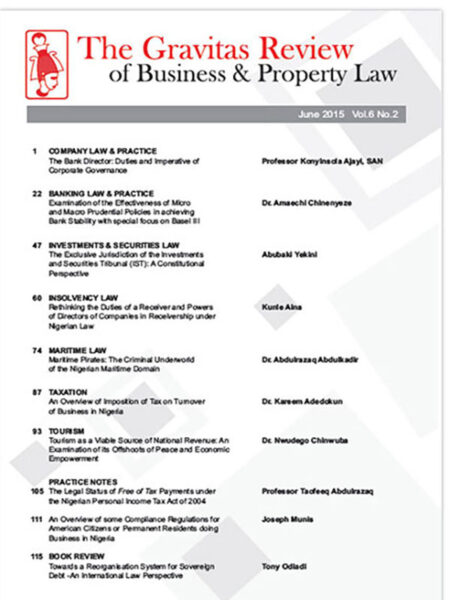
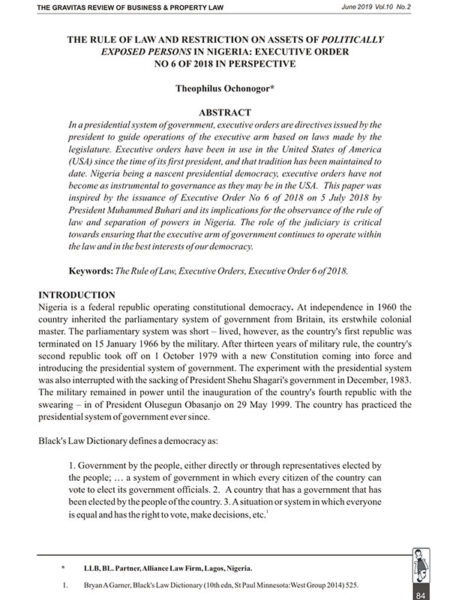
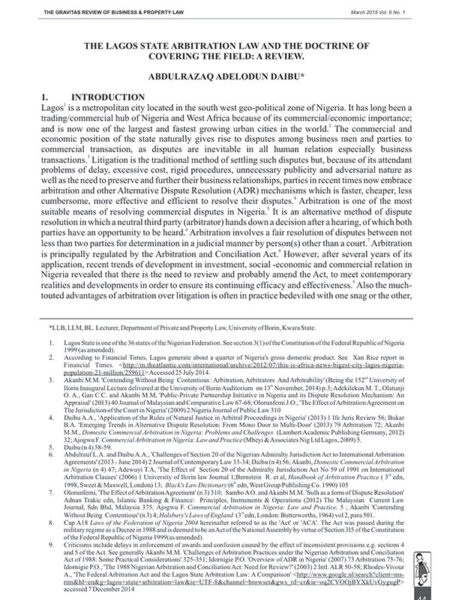


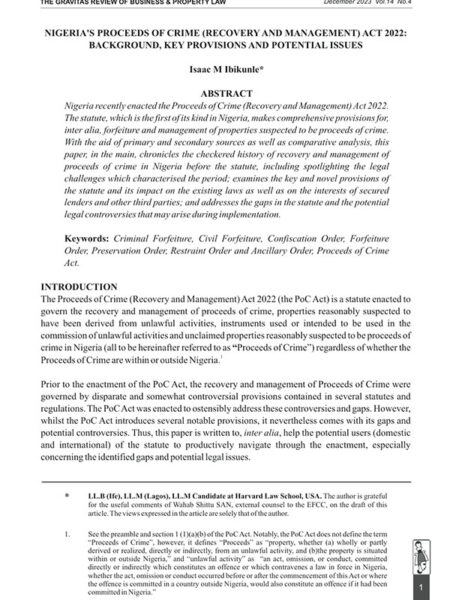
Reviews
There are no reviews yet.